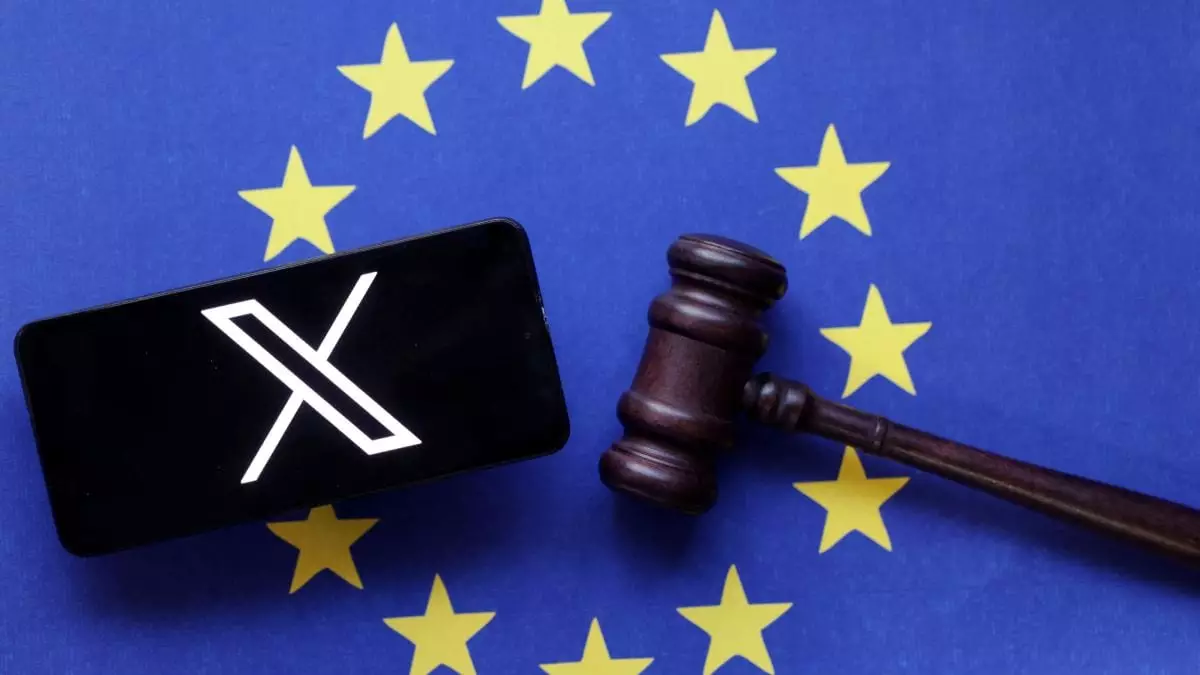The European Union’s ambition to regulate digital platforms is evident in its ongoing investigation into Elon Musk’s social network, known simply as X. As the bloc scrutinizes whether the platform has violated its Digital Services Act (DSA), it opens up discussions on the broader implications of tech regulation in a global context. This article delves into the nuances of the investigation, the political ramifications, and the challenges that lie ahead for both the EU and Musk.
The EU began formal proceedings against X in December 2023, fueled by allegations that the platform has inadequately addressed illegal content and disinformation. Henna Virkkunen, the European Commission’s Executive Vice President, articulated that the commission is in the process of determining whether the current scope of the investigation is sufficiently comprehensive. This indicates a serious concern from EU authorities regarding Musk’s platform and its adherence to stringent content moderation standards.
The EU’s scrutiny has intensified amid Musk’s increasing engagement with far-right political figures. Notably, his live-streamed conversation with Alice Weidel, a candidate from Germany’s Alternative for Germany (AfD), raised alarms regarding potential violations of the DSA, particularly concerning the perceived amplification of political messages. What complicates matters further is the context of growing foreign influence in European elections, illustrated by recent events, including the annulment of Romania’s presidential election due to Russian interference. This backdrop highlights the EU’s urgent need to safeguard its electoral integrity against external threats.
Elon Musk’s position takes on additional significance as he becomes a notable adviser to President-elect Donald Trump. This political affiliation raises questions about the intertwining of politics and technology, especially when informing and managing public discourse through social media platforms. The EU’s probe into X coincides with escalating tensions between European regulatory bodies and American tech giants. The potential for political bias within social media platforms is an important concern, leading to calls for transparency and accountability.
Moreover, the challenges facing the EU are compounded by Musk’s pledge to legally challenge any adverse rulings stemming from the DSA. This move could lead to prolonged legal battles that might hamper the EU’s ability to operate effectively, particularly as Trump assumes his presidential role.
The response from the tech industry, particularly from prominent figures like Mark Zuckerberg, underscores a growing tension between American companies and European regulatory frameworks. Zuckerberg has voiced concerns that EU regulations might act like tariffs against U.S. businesses. His comments reflect a broader sentiment among Big Tech leaders who are rallying for protection from what they perceive as overreach by European authorities.
It’s notable that these discussions are taking place amidst Musk’s unabashed criticisms of EU regulations, where he has openly confronted officials regarding the DSA’s implications. This situation represents a crossroads in the relationship between the EU and leading Silicon Valley figures, with the potential for significant ramifications in the digital policy sphere.
The EU’s investigation into Elon Musk’s social media platform X serves as a lens through which we can observe the complexities of regulating digital spaces in an increasingly interconnected world. As the EU seeks to uphold its Digital Services Act while facing opposition from powerful tech executives, the struggle to balance innovation and regulation continues. The stakes are high, not just for Musk and X, but for the broader landscape of social media governance, political integrity, and global cooperation in addressing disinformation and foreign interference. The outcome of this investigation could very well set precedents that shape the future of digital policy and reliance on social media platforms in Europe and beyond.


Leave a Reply